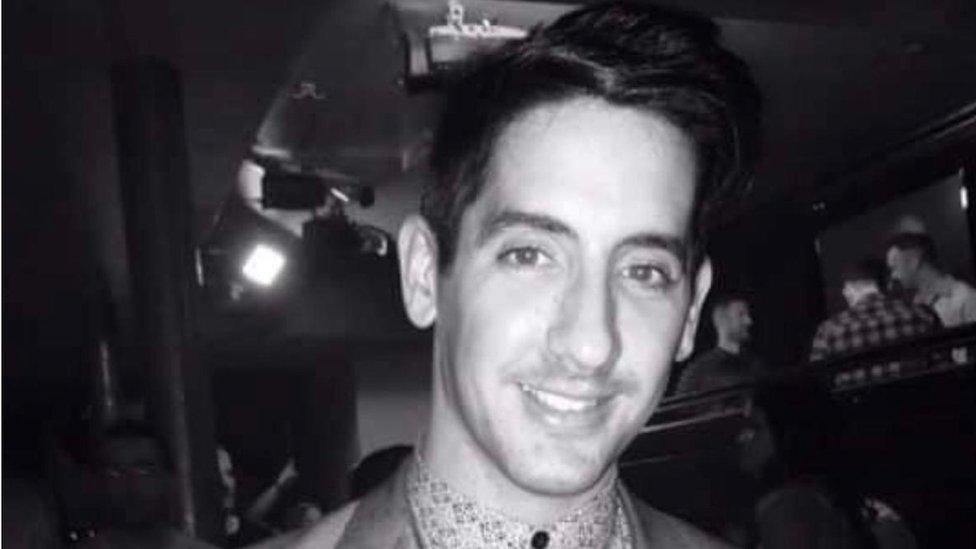Mental health: 'We could have helped - but no-one told us how'
- Published
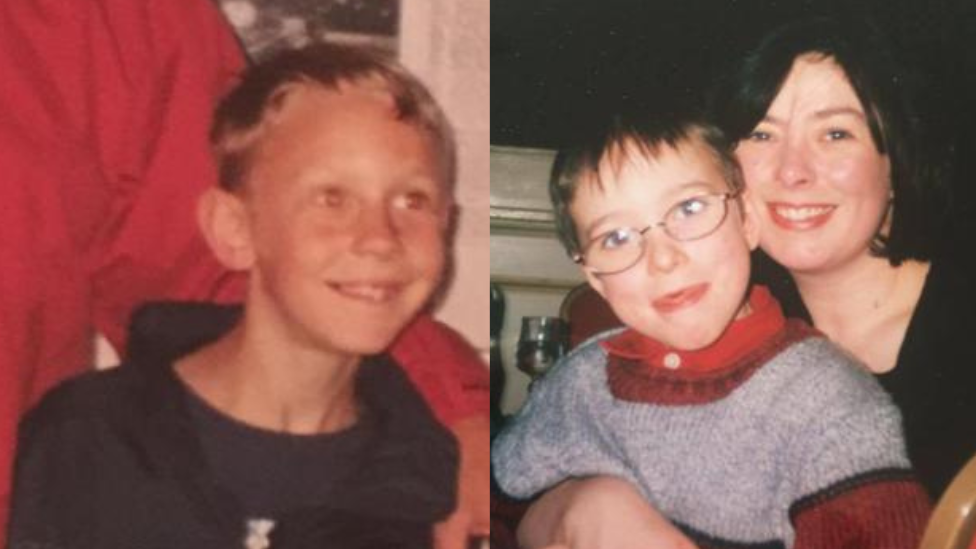
William Scott and Conall Gould both struggled with mental health issues before their deaths
Two mothers who have lost sons to mental health problems say "a new approach" is needed to dealing with such issues in Northern Ireland.
The women were speaking at a Stormont event organised by the New Script for Mental Health campaign.
The event encouraged attendees to outline what changes they would like to see to mental health services.
Mary Gould's son Conall died aged 21 after he struggled with mental health issues.
The midwife from Ballymena said changes to services were needed as soon as possible.
"Conall was just so full of life, so happy, really into sport, he had so many friends," she said.
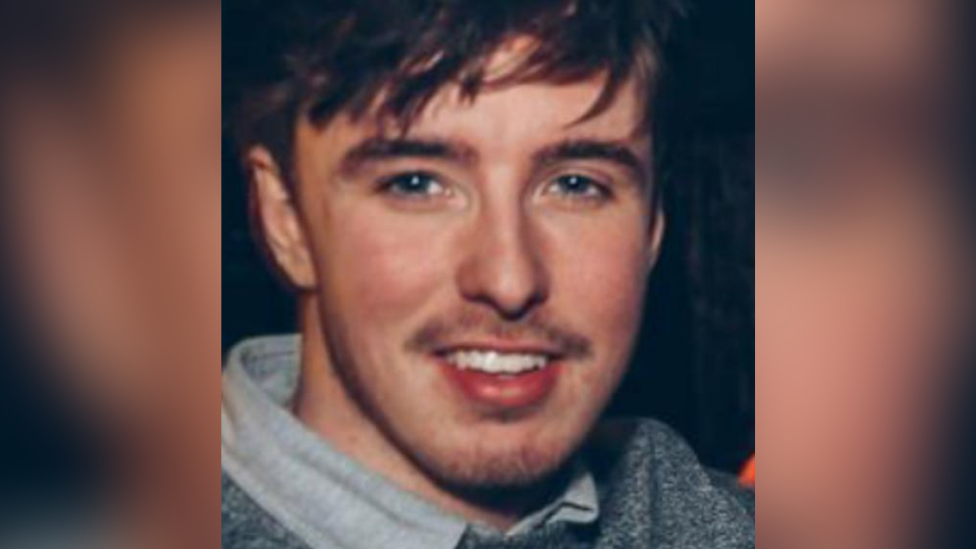
Conall's mother said the family could have helped him if they were properly equipped to deal with mental health issues
"As a family we just feel like we could have been given so much more support or we could have been enabled to help Conall ourselves.
"If we had been given the tools, and the understanding of what was happening, we could have helped Conall so much.
"We didn't know where to start and we had never seen anything like this before. There was no-one to signpost us."
'A daily struggle'
Conall died in 2017. His mum said his loss continued to have a massive impact on his family and friends.
"Personally, for me, it is a daily struggle," she said.
"I find it very difficult. I wake up every morning and I cannot believe that my child is gone.
"We were just an ordinary little family, and we are in the worst nightmare that you could ever think of."
Deirdre McCausland, from west Belfast, has received support for her mental health.
She is worried that budget pressures and cuts mean services she has relied on in the past may no longer be available.
"I have discovered that as an individual I have become more confident, more appreciative of myself, more loving of who I am, and just listening to their stories, it also makes me feel human, it makes me feel sane that there's other people going through what I am going through," she said.
"We need healing therapies to be funded and they need to be timely - they are vital."
'How many people are struggling?'
William Scott was told he had autism at the age of 18, but his mother Kirsty said he "couldn't cope" with the diagnosis.
He died from an accidental drugs overdose when he was 19.
His father Gordon died from a heart attack a year and a half later.
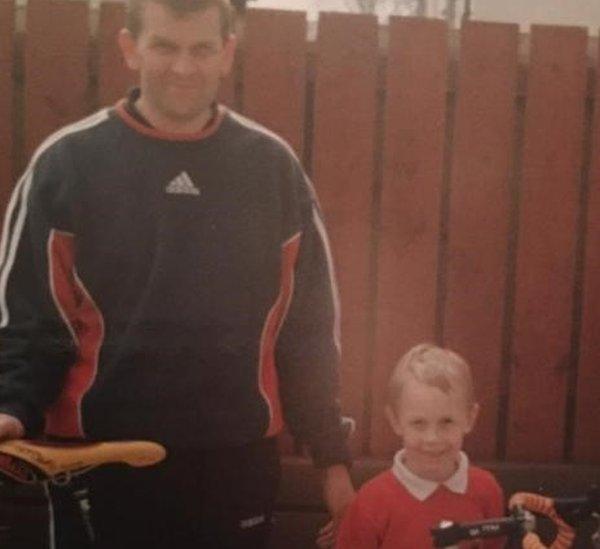
William Scott as a young boy with his father Gordon
After suffering two bereavements in such a short space of time, Kirsty required mental health support.
She said she received good care, but that the same support was not available to William when he was alive.
She said parents need more guidance.
"Ten years on and I am saddened people are still having to go through this," she said.
"How many people are listening to my story struggling with their own child, struggling to get services?"
"This is probably the last thing I can do for William. William's not here anymore and he wouldn't want anyone else to suffer like that.
"I watched that little boy go from a fun little blonde-haired boy to somebody who sat there with a hoodie over their head to eat their dinner, who was in their room 23 hours a day, only came out at three o'clock in the morning to make a meal.
"Mental heath is very important and until I went through it, I didn't understand it."
For Kirsty, talking has been the only thing that has helped her through - in telling her story, she has met other people who lost children too.
"We don't want to belong to this club, but we're in this club," she said.
"We have to make changes because what we have now simply isn't working and people are being let down. As long as we have a voice, our children still have a voice."
'Flip the script'
Sara Boyce, from Participation and Practice of Rights (PPR) said the current approach to mental health in Northern Ireland was "outdated".
"A conversation needs to be had," she said.
"Instead of asking people what's wrong with you, start asking people, what happened to you?
"And that totally flips the script. That's what we're starting to do here, we're having a conversation in which we hope more and more people will get involved."
If you have been affected by any of the issues in this article, help and support is available at BBC Action Line.
Related topics
- Published14 January 2023
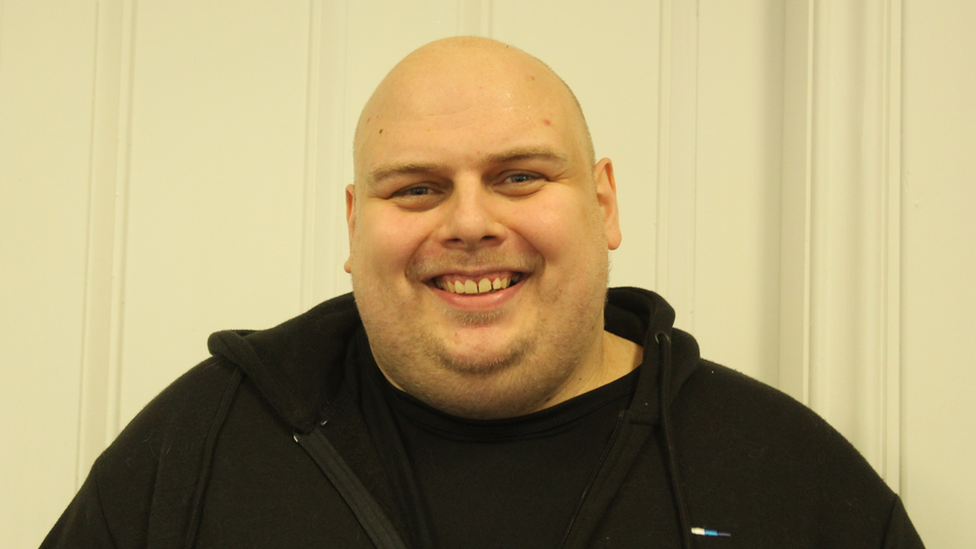
- Published3 October 2023
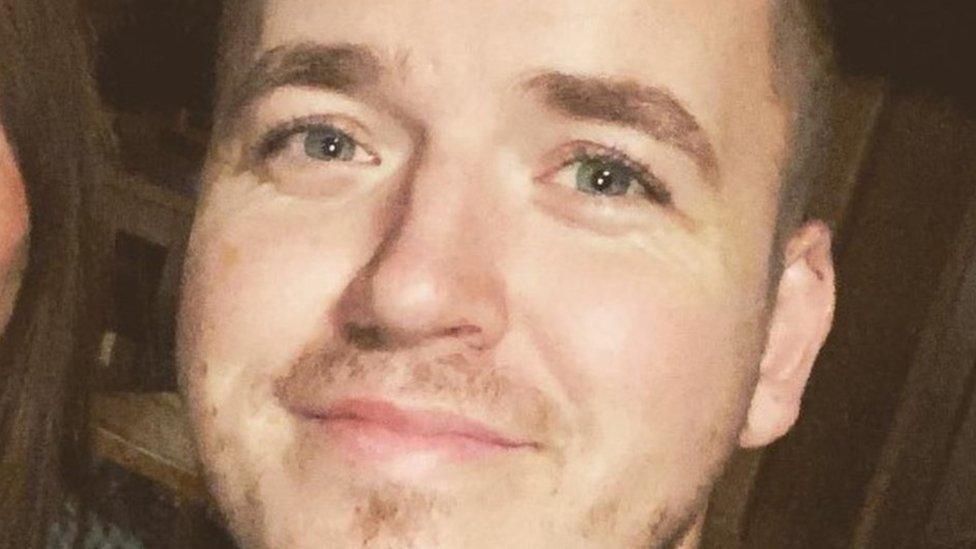
- Published26 August 2023
